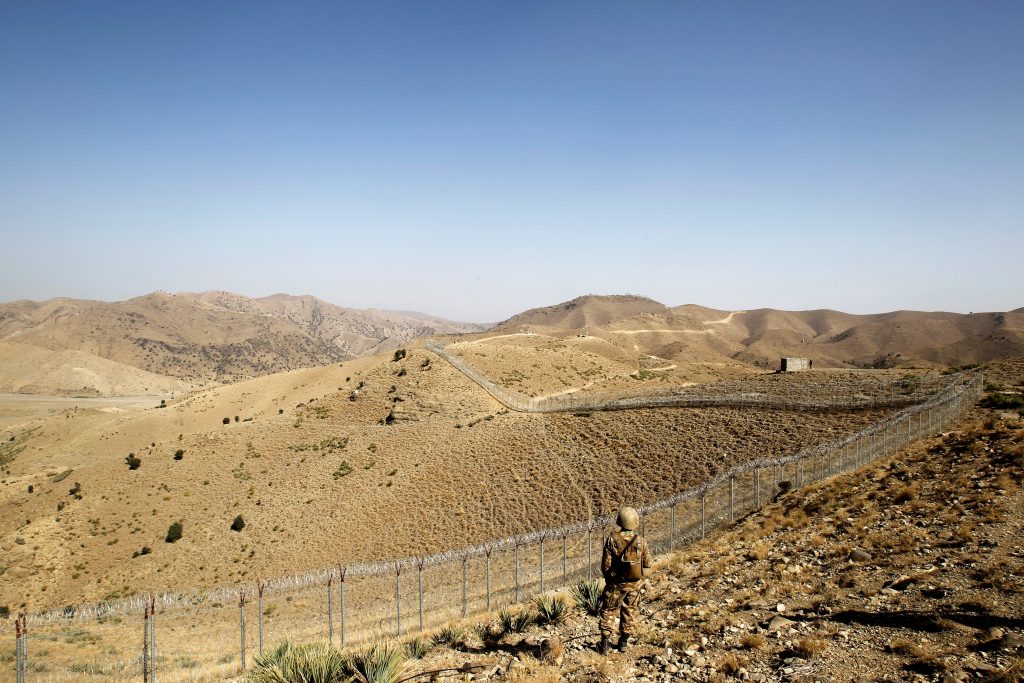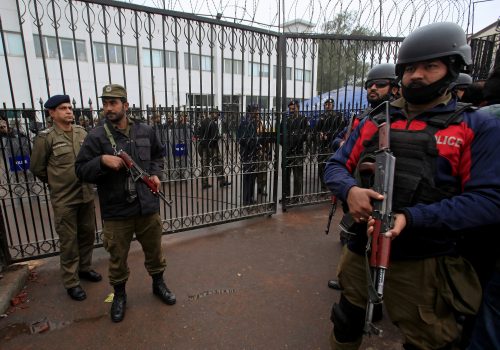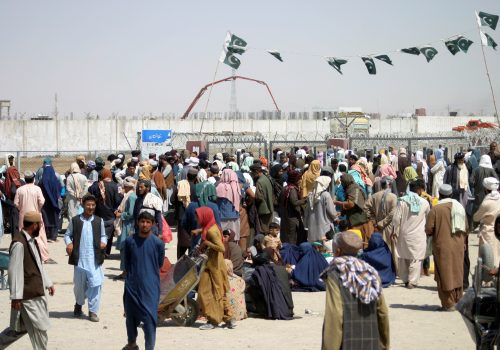Ever since the withdrawal of US forces from Afghanistan, Pakistan has been consistent in stressing the need to not abandon its western neighbor.
Pakistani Prime Minister Imran Khan has repeatedly urged the international community to not isolate but help Afghanistan so as to prevent a humanitarian disaster. Other than pledging assistance for Afghanistan, Pakistan has galvanized international support for that country, mainly through the platform of the Organisation of Islamic Cooperation (OIC).
Believing that ruckus and mayhem in Afghanistan will be a bane for the entire region, Pakistan has intensified its efforts to help Afghanistan deal with a series of crises. The recent visit to Afghanistan of Pakistan’s National Security Advisor Dr. Moeed Yusuf was centered on exploring opportunities to not only provide it with humanitarian, technical, and economic assistance, but also to enhance strategic connectivity between the two through the completion of transportation and energy projects. However, while Islamabad remains committed to helping its troubled western neighbor navigate its problems, Kabul, under the Taliban, appears to be unwilling and noncommittal when it comes to addressing the former’s core security concerns. Not only have Taliban commanders vociferously objected to fencing the Pak-Afghan border, but they have also physically tried to stop the Pakistan Army from working on the project.
What’s more, though they have assured Pakistan that Afghan soil will not be used to commit terrorist acts against any country, they have been found waning in acting against the Tehreek-i-Taliban Pakistan (TTP), an anti-Pakistan outfit that operates out of Afghanistan. The banned group, it must be stated, after unilaterally ending an Afghan Taliban-brokered ceasefire, has started carrying out attacks inside of Pakistani cities, including the capital Islamabad. The Afghan Taliban have refrained from commenting on the resurgence of the TTP, raising speculations of their providing tacit support to the group.
The Taliban’s refusal to recognize the Pak-Afghan border and its legitimate fencing coupled with their not pulling the plug on the TTP will present a package of security threats to Pakistan. The Taliban’s lackadaisical approach towards Pakistan’s security woes could be a boon for subversive forces, especially the TTP. Thus, with Pakistan committed to augmenting its security in a comprehensive manner as enshrined in the recently-released National Security Policy, it needs to recalibrate its approach to the Taliban. A reboot is necessary when it comes to matters regarding its sovereignty and security.
There are three things that Pakistan must do going forward.
- Pakistan must categorically enunciate that fencing the international border and dealing with the TTP, through the use of force or negotiations, are non-negotiable agenda items. Islamabad has to present these two matters as its sacrosanct red lines. This will, in effect, mean that Islamabad must do away with giving perfunctory statements on anti-fencing protests by the Taliban. After the recent spat over fencing, Pakistani policymakers came across as conciliatory in their tone and tenor. While resolving a thorny issue like this amicably should be preferred, Pakistan cannot give the impression that it is fine with the Taliban intruding on its domestic matters. The optics of giving the Taliban leeway on a matter as significant as this will not be good. It is also important for Pakistani officials, including the Prime Minister, to publicly and privately convey to the Taliban Pakistan’s position on border-fencing. In their parleys with the Afghan Taliban, Pakistani officials must draw the line and warn their counterparts about the consequences of disregarding the fence. This must be supplemented by a much firmer response if attempts are made to remove the fence going forward. The Afghan Taliban and international watchers must not get the impression that Pakistani leadership is vehement in batting for an Afghan government that is challenging the sovereignty and security of its country.
- Pakistan can ill-afford to turn a blind eye towards the Taliban’s inaction against the TTP. While it must be acknowledged that the Taliban facilitated a short-lived ceasefire with the TTP, it is important to assert that this is not the only thing that will show the group’s seriousness in ridding their land of anti-Pakistan forces. In this regard, Pakistan must adopt a multi-pronged, flexible approach. It should first push the Taliban to streamline border management. Moreover, it could not only share actionable intelligence through a mutually convenient mechanism but also commit to building the capacity of Afghan forces. Finally, Pakistan must not rule out conducting strikes inside Afghanistan on legitimate military targets. This is important because Pakistan cannot to be expected to successfully stall a reinvigorated TTP by merely responding to attacks. Islamabad must raise the costs for the TTP, with a view to achieving both deterrence and compellence. Given the magnitude of this threat, Pakistan should not let the Taliban’s inaction come in the way of its counterterrorism objectives. This policy must be clearly articulated and conveyed to the Taliban.
- Drawing red lines, communicating them to the Taliban, and making them inviolable should not put an end to Pakistan’s helpful, impactful interventions in Afghanistan. Pakistan must continue advocating for the rights of Afghans as they are in need of immediate help. Pakistan should also facilitate more people-to-people contacts, especially between youth and in the fields of education and health. Pakistan cannot afford to be seen as an actor that is contributing towards what Prime Minister Khan calls a manmade crisis. If anything, Pakistan should position itself as the country that remains invested in a positive future for Afghanistan. Both Afghanistan and Pakistan must move beyond extending goodwill gestures. For its part, Pakistan must convince the current dispensation in Afghanistan to join the China-Pakistan Economic Corridor (CPEC). The Afghan Taliban must be made to realize the perks of a friction-free economic corridor on the Pak-Afghan border. In other words, through providing assistance and making efforts to integrate their economies, Pakistan can help Afghanistan understand the ramifications of a Pakistan ensnared in security threats on its western flank.
Thus, while Pakistan is rightly highlighting the need for the international community to engage with the Afghan government, it must ensure that the Afghan Taliban do not ignore Pakistan’s vital security interests. With a view to obtaining the Taliban’s compliance, Pakistan has to not only toughen its stance but also show its resolve to raise the cost of transgression. However, Pakistan must also mix this toughness with its continued humanitarian support to Afghanistan. This two element approach, if rightly implemented, could help Pakistan navigate the intricate sets of challenges that a Taliban-controlled Afghanistan brings to the fore.
Syed Ali Zia Jaffery is a Research Associate at the Center for Security, Strategy and Policy Research (CSSPR), University of Lahore.

The South Asia Center is the hub for the Atlantic Council’s analysis of the political, social, geographical, and cultural diversity of the region. At the intersection of South Asia and its geopolitics, SAC cultivates dialogue to shape policy and forge ties between the region and the global community.
Related content
Image: A soldier stands guard along the border fence outside the Kitton outpost on the border with Afghanistan in North Waziristan, Pakistan October 18, 2017. REUTERS/Caren Firouz



